
Winning Callbacks w/o The Casting Couch
Not to burst bubbles here, but dozens of times I have been told after a callback that I am on avail, first refusal, or even on hold for the job or spot. Don’t go jumping up and down on that one, because until you get the booking or a wardrobe call, it means very little. It feels pretty good, but that’s about all you can count on. I was at one callback where the casting director came out in the waiting room and said, “All of you in the room are on avail.” And there were twenty of us there for that one role. Great, thanks so much. *Stoked*
Being up for a big role that's just between you and another actor is a pretty intense situation. If they end up choosing them, (especially after a callback), that can be pretty devastating. You just have to get back up off your butt and go after the next one. Sometimes it isn't easy. But I learned that I will get my share, and I will book a percentage, if I can be myself, hang in there and stay positive.
When I get a callback for a commercial, (or for anything else for that matter), I always wear the same wardrobe I wore for the initial audition. It helps to remind the people that selected you for a callback to remember who you are. The odds are they have seen a lot of people. You want them to think, “Oh yeah, I remember that guy.” Plus it helps me to feel more like that role again. It’s like I am playing me again version 2.0.
I follow pretty much the same habits and mechanical things as I did for the first audition, unless they offer me some direction when I get inside the room. Whatever it was that I did in the first place, they liked it and gave me a callback, so I try to stay true to that.
Sometimes, the campaign, or show may still be evolving a little, and the copy for the script may have changed. I always double check for that and look at the storyboard if there is one, outside the casting room area. I make any adjustments if I need to for it.
This is also another time that I make sure that I’m familiar with all the parts before and after mine so I don’t get caught flat footed. I study any other spots I’m not there for that are a part of the same campaign.
The callbacks are always interesting, and sometimes they can be pretty intense situations. They just auditioned 300 actors for a role. Three days usually have gone by, and two or three actors have gotten a callback for that part out of that mob.
Eyes wander in the casting waiting room. Everyone is sitting there looking at each other, knowing that one of us is getting this job. Then you find yourself in an audition room with around 20 people looking at you standing there on the mark. You've got the Ad agency people, the product clients, a few from the production company, the director, casting director, etc. It's hard to be relaxed in this kind of a stressful situation, but you learn to do it over time.
Building up your self confidence is the way to go, and that comes from experience. You get that from being in this situation a lot, and building it up. They are spending millions of dollars on their baby, and they want to be sure you are experienced, can handle it, are good, and professional. On the other hand, sometimes that’s all out the door, and it’s just a “look” they have in mind, and the director figures they can make it work with anyone. A body with a look is just a necessary inconvenience. It happens sometimes.
It’s easy to get a little rattled at a callback. Learn to relax, trust yourself, listen, and breath. There is a lot more pressure, because now I am very close to landing this role. So are the other people in the room with me.
I go in with the expectations that all the actors there are all either equal to me, or better than I am, because we all got the callback. So I need to be prepared, confident, and relaxed. I am going in that room with the mindset that I am going to beat the competition. At the end of the day, that’s what this has all been about. I have invested two days working for free already on this, and I am going to deliver. Period.
It used to be with callbacks they would just see a couple of actors for each role, now I see as many as twenty. There’s nothing we can do about that, except keep our focus, concentration, know our material, be confident, relaxed, and ready to make adjustments.
Inevitably, at one of these callbacks, you will hear someone loudly boasting about all the wonderful jobs they have done, implying how great they are and that you don’t have a chance against them. Some of them are just knuckleheads, but others are trying to get inside your head. They try and get you depressed and/or thinking that you can’t win against them. It can get to you if you allow it in. Don’t fall for that crap. It’s usually their intention, or they just need some attention, because they are probably weak themselves. Many of these characters can talk a big game, but in reality they probably haven’t done $hit. Don’t let those big egos get to you in there. It affects your confidence, and your audition.
I’ve seen a lot of mind games, and attempts to intimidate others going on in the waiting room, especially at callbacks. Some actors will try to psych you out in the waiting room, and they love trying to do it. Some even get off on it. Unfortunately there are some people like that when you get to the professional level.
Other times it’s done in more subtle ways with things like glaring at you, or just body posture. If you are sitting there all nervous about it, and someone else is sitting there confidently, relaxed and ready to go, that’s not good for you. I admit, I have been in both of those seats. Solutions? The same as before, I turn on my mp3 player, or I go to another part of the room to get away from it. Mostly I just try to tune it out however I can, and get my focus back on.
Many times at callbacks I will show up, and all of the other callback actors will be in the room at the same time, waiting for the clients and/or director to show up before they can get started. That happens a lot. I’m not into playing mind games or talking crap or even just passing the time chatting.
It may appear intimidating to others, but I just sit there confidently, looking relaxed, and prepared. I’m going in to get this job, I'm as good as the rest, and I don’t care who I am up against, I’m going to do my best and win. I don’t distract myself by thinking about the potentially huge amount of money that’s at stake here. This is not the time for that. It only puts unneeded pressure on you if you think about things like that. Put it all out of your mind.
When I go in the room, I try to be ready for anything. There have been times that I went in and all the other actors were a certain type, and I looked a lot different than the rest of them. Don’t freak out if you see this. The other actors are sitting there looking at you and thinking, “What the hell is this guy even doing here?” Remember that they gave you that callback for a reason, because you were good! So don’t let seeing something like that throw you off. I have booked many jobs where I was the “outcast” in the room. Tune it out, and focus.
They may have also changed the part you thought you were going to be reading for to a different one. Be sure to check it out, and be ready for something like that so you don’t get caught flat footed. Usually, it’s just another reading of the same part. I try to color it, and fill it out a bit more if I can. I always have a few different reads for the part ready to go just in case.
On occasion it can be that they are ready to hire you, they just want to see you one more time to really size you up. Most likely, all they have seen up until now is the first audition you did on the tape. It might be as simple as being asked a few questions, or maybe a personality style interview.
The director and crew on this job are going to be working with you all day long. They might want to be sure you can take some direction, and aren’t going to be some kind of scattered ego-maniacal prick or something when they meet you in person.
If you do a reading, and then you get some direction to read again, (and follow it), that’s a good sign. If you do that, and then they take some time to ask you a few questions afterwards, that’s a really good sign!
If the director gives me some direction, I listen to it very closely. In stressful situations we have a tendency to rush things. I take my time and process the new information. Just a few beats, but long enough so my brain can process it, and then my creative side can take over. On occasion I will ask for a moment to process their direction. They don’t mind that. I don’t want to blow this thing because I didn’t take my time with it.
I’ve made that mistake a few times, and spent days beating myself up over it. This is my callback, I’m going to own it, and own the room. I’m not going to fall into the trap of rushing it because they appear to be in a hurry. I’ve usually only got one chance at this, and that’s it. Then it’s over, and I’m left thinking, only if I had done this…
Often they are seeing twenty actors for each part, and they have to give out the same old instructions and direction repeatedly to each actor. After doing it a bunch of times, they tend to get impatient, and rushing things because it’s so repetitive going over it with each person. Think about how tedious that must be. That’s no reason for you to not take the time to think about the direction you are given, the adjustments you need to make for a few seconds. Just ask for it, it’s YOUR callback. And you want this job.
A few times I lightly joked about it with a director. “I need a few seconds for the logical analytical side of my brain to process the information, then the intuitive creative side of my brain is freed up to follow it better”. It impresses them if you are a thinking actor and taking their direction seriously. One of them actually said that exact thing to me after I was hired on a job.
If I’m not clear on something, I just ask about it. They like to know that you aren’t one of these actors that are afraid to speak up. If I’m not sure about something, I ask.
I always do my homework on a product, and their prior commercial campaigns. What kind of spots are they running right now? What kinds of things have they done in the past? Take some time to research the particular casting director also. An extra tidbit of information can go a long way. It’s easy to do a little quick research on the web now. This gives you a big edge on the other actors.
One time I was at a callback for a chewing gum, and I knew about their current campaign. In their commercials when the other two actors were kissing for too long, the third guy would roll his eyes because he had to wait for them for so long. The spot was a retread of the same concept. I already knew that, so when I auditioned I knew right when to roll my eyes as if I was in one of their current spots. This wasn’t even mentioned in the sides, (script) but I knew it was going to be in there.
When I got the job, during the lunch break, the director said he hired me because I was professional, familiar with their product, and it impressed them that I had done my homework.
At another one, I was there for a part as a dad in a soda pop commercial. They also were casting another spot as a part of the same campaign. It was a grubby convenience store/gas station clerk who was pictured in the storyboard wearing a baseball cap. I just had this strong feeling that I had a better chance of being cast in that role. It was almost as if that rough sketch sitting there on the wall was of me. So I studied it just in case I could get them to let me read for it. Listen to your instincts.
I carry my gas station guy cap in my back pocket or briefcase for something just like this. I went in and read for the dad part, with the cap folded up in my back pocket. I read for the dad role, and I could tell they were not feeling me for this role at all. A split second before they said thank you, next. I just said, “If time permits, I would like to give you a quick read on the gas station guy part.” And I paused…they paused...then one of them says, “Okay what the heck, go ahead.” I whipped out the cap, popped it on my head, and read the tag line for the other part.
The premise was, a guy sticks a car engine oil dip stick into a pop bottle, pulls it out and runs it across his lips as if to be checking it. Then he says, “Tastes like a winner!” So I made an imaginary bottle in one hand, dunked my finger in there, and then ran it slowly across my lips and delivered the tag line with lots of energy, and then a dopey expression of approval.
The entire room of ad executives, clients, and everybody else burst out laughing. I had just brought that spot to life. I thanked them, and left. Before I even got home, I was on hold for that role. When I actually did the shoot, they wanted me to do it exactly the same way I did at the audition. During one take I grabbed the plastic soda bottle too tight and the soda came shooting out the top, which was an obvious flub, but I crammed the dip stick in there and continued on through to the tag line. That "mis-take" ended up being the one they actually used in the spot. It was too funny.
I found out later from one of the ad guys, that they weren’t going to hire me until I did that gas station guy thing. He said the entire room all agreed that was exactly the vision they had for that spot, they loved it, and that’s why they hired me.
So I learned three things from that experience. One, study the other spots and roles. Two, if I screw up on a take, keep going. I learned that in live theater, doing stand up, and also from playing songs with bands. Three, listen to your instincts, and remember this is your callback. You have some power at this point to show them something if you ask for it the right way. They are looking for a quick read, and an honest reaction, or expression. Often our actual role in a commercial is five seconds or less, so there is no time to really develop a character. We have to just be “in the moment”, or even “in the second”.
Like I mentioned, sometimes at callbacks all they want to see is if you are relaxed enough to work with all day. Most of the time, all the actors they have chosen for the callback are more than qualified to do the job. They want to see what it’s going to be like working with us. I’ve found that having a sense of humor is a good thing to have in these situations.
Not to be standing there cracking jokes, or being a smart A$$, but if you can drop a quick funny line that is related to the job, or situation you are in, it indicates that you are relaxed even under very stressful situations. Which is exactly what most commercial shoots are like. They are very stressful and there is lots of pressure on everybody involved all the way down the line. The casting director, the clients, the ad agency, the production company, and the director. You can show them that you are at ease with a little humor, as long as it’s not too over the top.
Again, a lot of it is about reading the room, keeping your head in the game, and feeling the vibe in there. A lot of actors at callback are nervous, some of them tend to run their mouths, and say stupid things. I think very carefully about anything I say in the room. Anything I say can be a reflection on the casting director, especially if it’s negative.
There were three of us for this one role in a motel commercial as cowboys. We were all qualified, very convincing looking, and all very good for the part. Usually they bring the actors in one at a time for callback, but for this one, they brought us all in the room at the same time and lined us up. When it came to my turn, the director had me do the line of copy, and then asks a leading question, wanting to see my response to it.
He said to me, “Are you a real cowboy?” “Tell me about it.” I was honest, I felt being dishonest would be a stupid move. So I said in very serious cowboy way, “No, but I can rope, ride, and shoot...however, usually I get jobs where I’m being shot at!” I put my finger through the hole in my vest. Everybody in the room burst out laughing. I booked the job. The director later said to me that they all felt I that I would be easy to work with, and seemed relaxed. He also said they liked my neck. What? My neck?
It’s hard not to dwell on the decisions and/or mistakes I think that I may, or may not have made on that last callback. “If I would have just done this, or that.” It can make you crazy driving home, or even for days if you let it. Or even worse, for those that have to live around you. Hindsight is always so clear. Just say to yourself, I did the best I could under the circumstances. Time to focus on the next one.
Even if I am convinced that I blew the audition, I just focus on the next one. Honestly, this happened to me a few times. I was absolutely sure I hosed this one callback, and then I booked it! Huh? On many others, I was convinced that I nailed it…and then nothing. We just never know what they are thinking or really want. The key is to just be professional every single time.
Every time you go on a callback, more important people have seen you and your work. The more people you see, the better the odds are they might want to see you again. Always remember, if you got a callback, you did your job, and you did it well.
A lot of us at the professional level audition for commercials from three to five times a week. At minimum, that’s 150 auditions a year. I did this in Los Angeles for 14 years. That adds up to 1000’s of auditions. I averaged only working about twenty days a year, but I earned enough from those to live on, and buy a home for my wife and I.
I lot of what I’ve written here are the audition habits, techniques, mechanical things, and rituals I would do to give myself the best possible chance to beat the competition, and win the job. No doubt, you will develop winning habits for yourself from experience. My hope is that some of the things I’ve shared here will help you.
Something I learned was to go ahead and spend the money for very expensive comfortable shoes with good foot support to wear at auditions. Being comfortable on my feet is a key element for me. Usually an audition is only a minute or two in duration. When I’m standing there for that moment, I want to plant my feet on the mark, be grounded, be comfortable standing there, and do the best I possibly can. It may sound like nothing big, but it’s not. You often end up standing around for a while during the day, but that moment when I’m standing there auditioning, I need to be comfortable, and my feet need to be feeling good. Ask any waitress or dancer about it.
I broke down, went out and got the most comfortable walking shoes, and a pair of dress shoes I could find. Most dress shoes are not comfortable for me at all, so I would get high end black tennis shoes that appeared close to dress shoes for those situations where I needed them. I got a brown pair of Rockport walking shoes, and those felt like I was wearing moccasins to me, yet they still had the good foot support. Those were very comfortable; I liked the Dexter brand of dress walking shoes also.
I played a mechanic, maintenance man, a construction worker, and other similar blue collar characters a lot. So I went out and go the best, most comfortable construction boots I could find also. The low cut ones are better than the hi-top boots. Because it’s easier to turn, and to move in them. Find a pair with good foot support, yet don't weigh a ton either. When you get to stomping around in construction boots all day, the heavier ones tire you out quickly. When you wear these, you can better feel the part, because you kind of clod around in them. They even affect your stance, which is part of the character.
It’s obvious that I never really made it big as an actor, but I was very blessed to be able to work a lot, and managed to make a living doing what I really loved to do. Just to get any work at all in this industry is kind of a miracle in itself. I was very fortunate to be able to earn a living for as long as I did.
It can happen if you are willing work hard at it. But you can't just sit there, and wait for your agent to call you. You have to do a lot of the other work, brand, market, and promote yourself like any other product out there that you see being advertised.
The feeling of euphoria when you get a big job is hard to describe. There is also nothing like the rush of walking out on live TV in front of a studio audience, (and with 20 million people watching). There is this wall of energy that hits you smack in the body. Whoosh!
If you have this dream, don't regret that you didn't try to be an actor. Even if they all say you can't make it. And a lot of them did that with me. “Oh, you’re not the right type.” “You can’t make it as an actor.” It made me all the more determined, and it should with you, if you ever hear something that. If I could offer any advice it would be to go for it if you are thinking about it, and then you won't always have to wonder...What If ?
I ended up going to Hollywood with a suitcase full of junk and $2000. To be honest, yes I was a little scared. I had done lots of regional work, but this is Hollywood, where the best in the world are. You compete with seasoned professionals for roles in everything on TV, Films, and even in commercials.
They say that Hollywood has an actor on every street corner. They were pretty much right about that. Everybody is an actor out there. It took a long time for me before I landed a really big job. It was almost a year before I hit a big commercial. The way things were going, I thought I might never get one. I had around thirty callbacks for roles, but I just couldn't seem to land the big one...and I was starting to doubt myself. "Man, am I ever going to get a job in this town?" It’s just a matter of the odds. I didn’t realize it was 1 in 83 auditions, and that most actors out in Hollywood gross less than $5,000 in earnings in a year!
Many actors who go out to Hollywood, last a year or two, and end up going back home. I couldn’t help but think, "Is that going to happen to me?" But finally it clicked, and I then went on to make a pretty decent living doing really stupid stuff, and making lots of people laugh in the process. I don't mind looking stupid if it brings a little joy into someone's life. I was surprised how many actors had a real problem with looking dumb, or doing some job that might be bad for their "image", or thought it might “hurt” their ego. Some of these people just don’t have things in the right perspective. A SAG job is a good job, whatever it is.
I realized right away I could make a living if I didn't have any hang-ups about people laughing, or making fun of me. Once the casting directors found out that I had no problem at all looking silly either, I started getting a lot of work. That's probably my best piece of advice for someone heading out to chase their dream.
One thing that was odd was that, even though I played lots of different characters, people started to recognize me on the street. I guess when you have three or four commercials running around twenty times a day people think, “I think I've seen that guy...somewhere" kind of look. It’s funny.
90% of all the work I booked was all comedy, but I did do a little bit of drama here and there. For me it was pretty rare. Hollywood saw me as a character comedy guy, and that was pretty much it. You can try and brand yourself a certain way, but the town chooses who you are. It’s up to you to recognize it as soon as possible, be able to accept whatever it is, and go with it. Most of the time your agent will put you in certain categories for auditions, and that helps you to figure out where you fit the best.
Many actors I knew would fight that premise, and as a result they would struggle work wise. Some actors would only want to do drama in feature films. Others didn’t want to do television, or do comedy, etc. Me? I didn't care. Any union acting job is a good job. If it touches someone and brings a little laughter to their day, I figure that’s a good thing.
Here’s some good advice from something Frank Sinatra said: “Be on time. Know your lines. Hit your mark.” That sounds like pretty solid advice to me.
“Sure I can play to look 40. I just grab the back of my neck and pull the wrinkles out of my face.” -SR
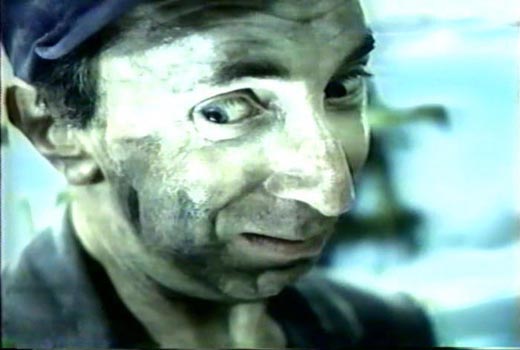
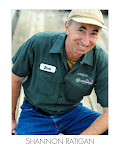

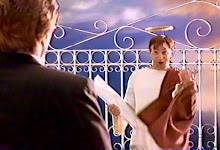.jpg)
.jpg)
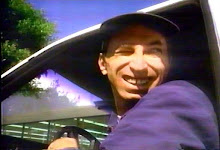.jpg)
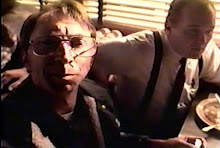.jpg)

.jpg)

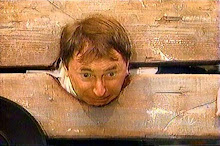.jpg)
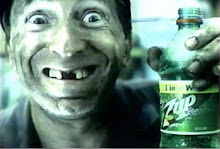.jpg)

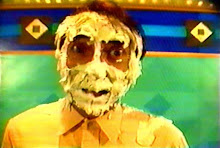.jpg)
.jpg)